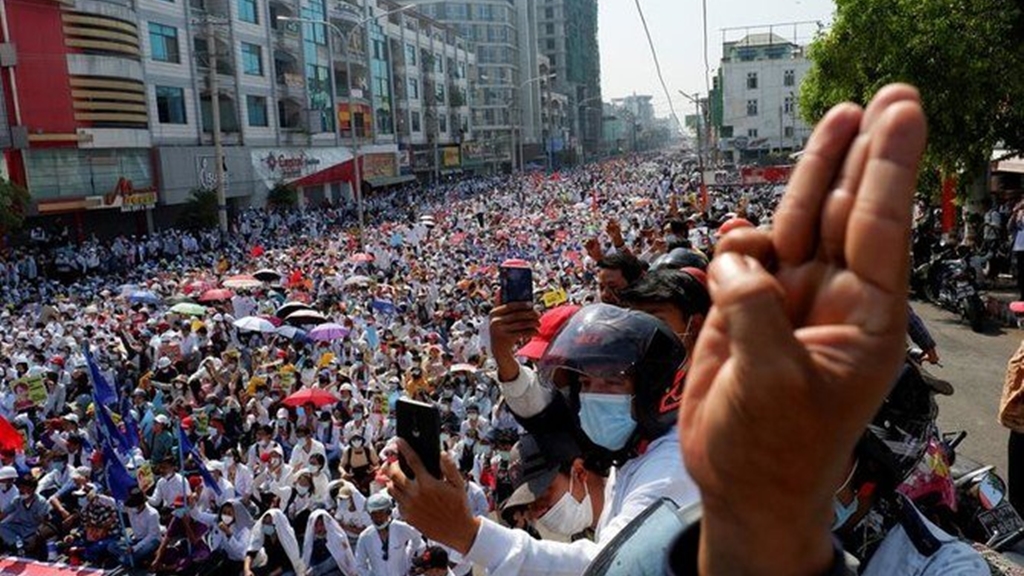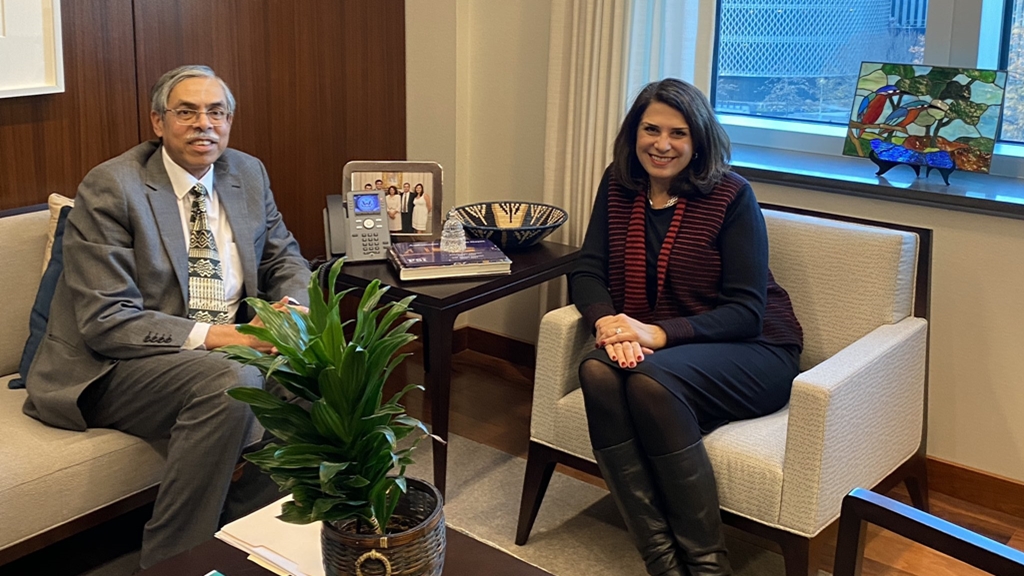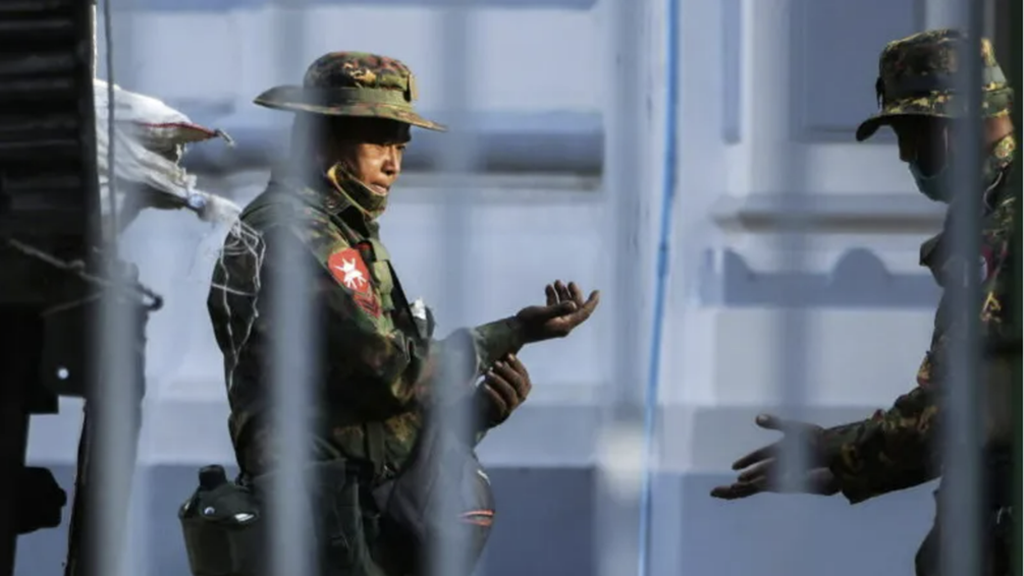
People of Myanmar, including Rohingya, unite against common enemy
- 13/04/2021
- 0
By Dr. Azeem Ibrahim, Arab News
The Tatmadaw, the military of Myanmar, which has dominated the country’s politics almost since independence, has finally achieved what no one believed was still possible: It has managed to unite all the people of Myanmar, across ethnic and religious divides… against itself.
Just under five years ago, the Tatmadaw, with the explicit backing of the civilian government led by Aung San Suu Kyi, decried any criticism of its brutality against the Rohingya Muslims in the western Rakhine state during its “clearance operations” as “fake news.” Now, the brutality that has been aimed toward the multitude of ethnic minorities in the contested borderlands for decades has come home and is currently being dished out against Burmese Buddhists in the heartlands of Naypyidaw, Yangon and Mandalay. And it is being dished out for the same reason: Civilians are objecting to and protesting against being ruled with an iron fist by the Tatmadaw.
For decades, the borderland minorities have been brutalized for asking for some degree of autonomy and self-governance. Now, the ordinary Burmese citizens in the heartlands are asking for the same thing in the form of a democratic voice. And they are being met with the same brutality.
In some ways, it is almost a positive surprise that the military does not appear to have been discriminating along ethnic and religious lines quite like we believed it was. And an even more positive surprise to come from this is that the Burmese majority in the country has been quick to empathize with groups like the Rohingya now that they themselves have experienced the true nature of the Tatmadaw. This was something that should have happened anyway, but it was not necessarily going to happen in response to the events of the past two months. There has been an outpouring of belated, but nonetheless welcome, sympathy and remorseful outreach by ordinary Burmese on social media, apologizing to the Rohingya for not believing them when they were being attacked by the Tatmadaw.
So now a new consciousness is emerging among the people of Myanmar: The real threat to Myanmar is not Muslims, not some crazy international Islamist conspiracy, not even superpowers like China or the US — the real and most immediate threat is the people who are actually killing them in the streets, men, women and even children alike. The real threat is the very same people who have beaten the people of Myanmar into submission for decades in the name of national security. The threat is, and has been all along, the Tatmadaw.
In this recognition lies a new and bright hope for the future. For decades, the Tatmadaw propagandized the people of Myanmar to believe they are under constant threat from external and internal enemies. That threat was supposed to be what united them and held the disparate ethnic and religious groups in this diverse country together. Well, it turns out that all the ordinary people of Myanmar did indeed share a common enemy, which bound them together as a collective of shared interests; except that common enemy was the Tatmadaw.
The Burmese majority has been quick to empathize with groups like the Rohingya now that they have experienced the true nature of the Tatmadaw.
Dr. Azeem Ibrahim
Now that the Burmese majority is finally realizing how much their interests and destiny are shared with all the ethnic groups the Tatmadaw has been waging war against since the day the country first became independent, the people of Myanmar will finally find the glue that holds them together as a people. That is a yearning for freedom and security from the arbitrary violence of the Tatmadaw, for democratic self-determination, and for a politics that binds them as a community, rather than divides them for the benefit of a small military elite.
Two months ago, when the coup was executed, none of us dared hope that something so positive could come from it. But real democracy has only ever been forged from the struggle of the ordinary people against overbearing autocrats. And, for the time being at least, the ongoing fires of repression lit by the Tatmadaw appear to be forging the very democratic spirit that the people of Myanmar will need to overthrow the military leaders.
- Dr. Azeem Ibrahim is a director at the Newlines Institute for Strategy and Policy in Washington DC. Twitter: @AzeemIbrahim







